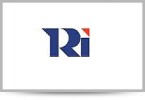
i
Morphing
Machines
13 Morphing Machines Jobs

Senior RTL Design Engineer
Morphing Machines
posted 3+ weeks ago
Job Role Insights
Key skills for the job
Job Description
- Design and implement architecture, microarchitecture, and digital circuits, including hw-sw co-design and RTL coding. Create functional specifications and other design documents. Collaborate with the verification team to test, debug, and fix design bugs, and work with physical design teams to ensure efficient design closure and implementation of late design changes. Additionally, create and maintain clear and detailed design documentation, including specifications, design guides, and coding standards.
- Technical Leadership: Lead architecture definition and feature specification of IP and/or submodules to enable development of benchmark solutions for current and future markets. Study and analyse emerging trends in technology and contribute to creating future product roadmap. Mentor and guide junior engineers in design tasks.
- Collaboration: Work closely with cross-functional teams, including verification, physical design, and software development teams, to ensure the successful integration of digital designs.
- Continuous Learning: Stay updated with industry trends, new technologies, and implement best practices related to digital design and RTL coding.
- Bachelors or Masters degree in electrical/Electronics Engineering, Computer Engineering, or a related field.
- Extensive expertise of 8+ years as RTL Engineer.
- Solid understanding of digital design concepts, computer architecture, and hardware description languages (Verilog or VHDL).
- Experience in complex digital designs like CPU/DSP core pipelines, cache coherence protocols, network on chip is advantageous.
- Familiarity with digital design tools and workflows, including simulation and synthesis tools.
- Knowledge of industry-standard protocols and interfaces (AXI, TileLink, PCIe, DDR, etc.) is advantageous.
- Experience with timing analysis and closure techniques is a plus.
- Strong problem-solving skills and attention to detail.
- Good communication and teamwork skills.
- Ability to work independently and collaborate in a fast-paced engineering environment.
- Passion for learning and a proactive attitude towards acquiring new skills.
Employment Type: Full Time, Permanent
Read full job descriptionSimilar Jobs for you
Senior RTL Design Engineer
5-8 Yrs
Bangalore / Bengaluru
Digital Design, Physical Design, RTL Design +5 more
Senior FPGA Engineer Emulation
10-15 Yrs
Bangalore / Bengaluru
Semiconductor, Analytical, FPGA +6 more
Senior Compiler Engineer
5-10 Yrs
Bangalore / Bengaluru
Computer Science, Semiconductor, Scheduling +6 more
Associate Systems Software Engineer
2-5 Yrs
Bangalore / Bengaluru
Python, C++, Linux +7 more
Senior/Staff FPGA Engineer - Cloud Deployment & Systems Integration
10-15 Yrs
Bangalore / Bengaluru
C++, Semiconductor, FPGA +6 more
SoC Architecture & RTL Engineer
10-15 Yrs
Bangalore / Bengaluru
Semiconductor, Partnerships, SOC +6 more
Project Manager - Cloud FPGA Platform
10-15 Yrs
Bangalore / Bengaluru
Project Management, Packaging, Linux +7 more
System Software Engineer
3-6 Yrs
Bangalore / Bengaluru
Technical Writing, Analytical, Open Source +4 more
Founders Office Executive
3-5 Yrs
Bangalore / Bengaluru
Sales, Project Management, Semiconductor +4 more
Senior Verification & Validation Engineer
4-7 Yrs
Bangalore / Bengaluru
Python, Semiconductor, Perl +6 more

























